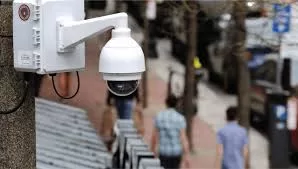Surveillance technology is no longer confined to security cameras in public spaces or monitors in stores. From self-service checkouts to the bustling streets of our cities and packed stadiums, surveillance is a pervasive force in our everyday lives. While it is often justified in the name of safety and security, the deeper implications of this constant monitoring may be more unsettling than we realize.
A recent study published in Neuroscience of Consciousness reveals a hidden side effect of surveillance: it’s not just influencing our behavior, it’s subtly altering how our brains process information—often without our awareness. The study’s findings suggest that simply knowing we’re being watched can heighten our sensitivity to other people’s gaze, with potentially significant effects on our mental health and social interactions.
Heightening Social Awareness: An Ancient Survival Mechanism
Humans have long relied on their ability to detect the gaze of others, a skill that helps us navigate social situations by distinguishing between allies and threats. This survival mechanism, deeply embedded in our brains, helps us read emotions, gauge intentions, and build social bonds. However, surveillance technology may be amplifying this instinct, keeping our brains on high alert for signs of social interaction.
In the study, 54 undergraduate students participated in an experiment where they completed a visual task under two conditions: one group was monitored by CCTV cameras, while the control group was not. Participants were shown faces looking either directly at them or away, and researchers measured the time it took for participants to register these faces.
A Hidden Shift in Perception
The results revealed a striking difference between the two groups. Participants who knew they were being watched detected faces with direct gazes nearly a second faster than those who were not under surveillance. This shift in perception occurred without participants consciously realizing it. Interestingly, this effect was specific to faces; no such enhancement was observed when participants viewed neutral images like geometric shapes.
This suggests that surveillance taps into a deeply rooted neural circuit dedicated to social processing, enhancing our “social radar” rather than simply heightening our general awareness. The brain is not just more alert; it is primed to detect social cues, especially when we know we are being observed.
The Unseen Impact on Mental Health
While the shift in perception might seem subtle, its consequences could be profound. An exaggerated sensitivity to the gaze of others is a hallmark of several mental health disorders, including social anxiety and psychosis. People with these conditions often experience heightened feelings of being watched, which can lead to anxiety and paranoia.
The findings from this study suggest that widespread surveillance could intensify these feelings, adding an unseen layer of stress to everyday life. Furthermore, participants reported feeling relatively unconcerned about the presence of cameras, even though their brains responded to them. This disconnect highlights how easily we have normalized constant observation, with our brains adjusting to this reality without us fully realizing the effect it has on us.
The Balance Between Security and Freedom
As surveillance becomes more ubiquitous, the ethical dilemma surrounding its use becomes even more pressing. Tech industry leaders like Larry Ellison, CEO of Oracle, envision a world where AI-powered surveillance is constantly monitoring our every move. While surveillance can deter antisocial behavior and promote safety, the hidden costs of constant monitoring are becoming clearer.
Jeremy Bentham’s 18th-century concept of the “Panopticon” envisioned a prison where the mere possibility of being watched would encourage self-regulation. This idea has since been applied to various aspects of society, with research showing that even the potential for observation can influence behavior. However, as this study reveals, the impact of surveillance goes beyond behavior—it alters how we perceive and interact with the world at a neurological level.
As surveillance technology continues to infiltrate our daily lives, it is crucial to consider not only its visible effects but also its subtle, unconscious influence on our mental health and well-being. In an age of constant monitoring, understanding the balance between security, privacy, and the silent shifts in our minds will be more important than ever.












